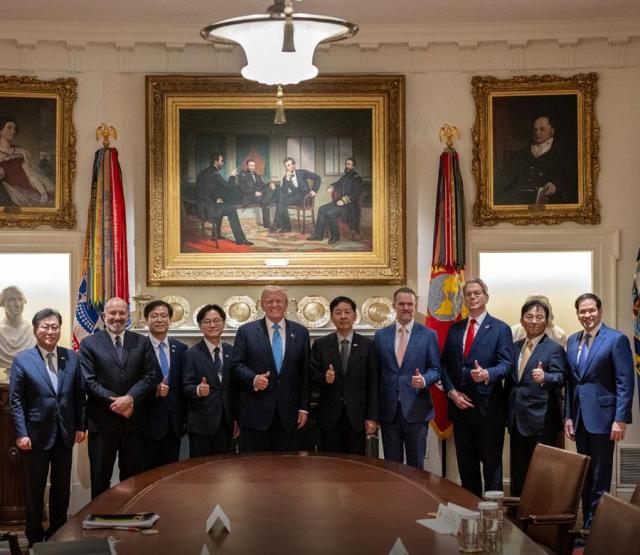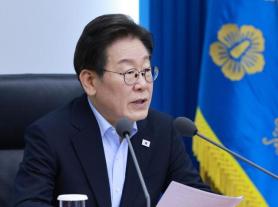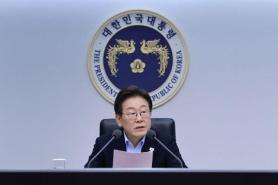
Citing an internal draft for a tariff-related deal that was concluded late last month, the daily also said the Washington "wanted Seoul to boost defense spending to 3.8 percent of GDP, up from 2.6 percent last year, and to increase its $1 billion-plus contribution to cover the annual costs of basing the roughly 28,500 U.S. troops in South Korea."
It also said U.S. negotiators pushed Seoul to accept the "flexibility" of U.S. Forces Korea (USFK) in its changing posture and roles to “better deter China while continuing to deter [North Korea]."
But it remains unclear whether these issues were formally raised during the tariff talks before the two sides reached the deal on July 31, in which the U.S. agreed to lower reciprocal tariffs from 25 percent to 15 percent in return for massive investment and wider market opening, leaving out security and defense issues, contrary to earlier expectations for a broader package deal.
The U.S. State Department also remained noncommittal, simply saying, "We do not comment on purportedly leaked documents. We do, however, look forward to the story on how the [Donald] Trump Administration is using reciprocal trade negotiations to benefit and fight for the American people."
In any case, the deal, already effective from Aug. 7, is expected to be further adjusted with additional details later this month when President Lee Jae-myung travels to Washington for his first bilateral summit with Trump, who apparently wants to leverage tariffs for broader national interests under his "Make America Great Again" campaign.
There is speculation that Trump might push Seoul for a steep increase in defense cost-sharing and other contributions, amid ongoing debates over "modernizing" the bilateral alliance, as he has consistently claimed South Korea pays "very little" for the upkeep of U.S. troops.
Copyright ⓒ Aju Press All rights reserved.




View more comments